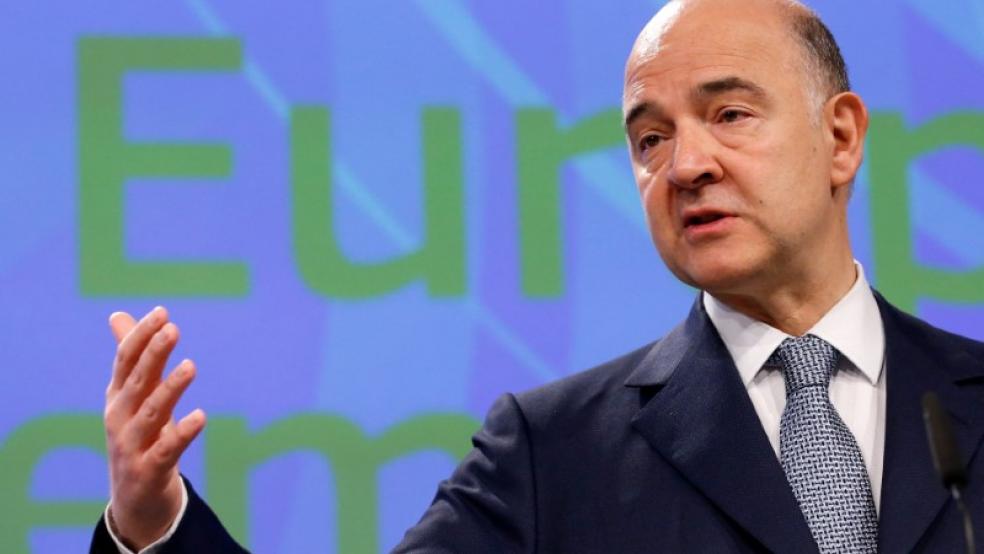BRUSSELS (Reuters) - The EU executive called on Monday for an expanded budget to cover more spending on defense, security and controlling migration despite the upcoming departure of Britain, one of the bloc's main paymasters.
European Commission President Jean-Claude Juncker led calls during a forum debating forthcoming negotiations on a new seven-year budget for the share of the bloc's economic output devoted to EU spending be increased by around 10 percent from 2021, the year after Britain will stop paying its substantial share.Juncker said that the EU costs taxpayers barely the price of a daily cup of coffee. His budget chief, the German commissioner Guenther Oettinger, said Brussels' funding should be increased from its current 1 percent of gross national income across the bloc to something a little over 1.1 percent. National public spending in the EU is more than 40 times that level.Britain's final departure from the EU budget at the end of 2020, after its formal Brexit in March next year, will deprive Brussels of some 12 billion euros ($14-16 billion) from an annual budget now running around 140 billion euros.That hole has already prompted a round of sparring between other net contributors in the West, which do not want to make up the shortfall, and poorer, ex-communist Eastern states, which say they should not suffer from cuts in EU subsidies.Friction between east and west over issues like some eastern states' refusal to take in refugees has added to the tension, with some in the West proposing EU subsidy cuts in retaliation.Juncker and Oettinger made clear that the Brussels executive did not back big cuts in the kind of spending designed to narrow huge gaps in living standards across the old Iron Curtain. Nor was major change on the cards in agricultural subsidies -- the biggest element in the budget and long a bugbear for London, which saw them as hostage to militant French farmers.NOT JUST ONE PERCENTThe Commission, which will present its full proposal for the next "multiannual financial framework" in May, wants to cover the Brexit gap, plus some additional expenditure, though a half-and-half mix of savings in some areas and new revenue sources.Juncker said the cost of managing new problems with migration across the Mediterranean and defending against militant attacks, as well as new EU programs on joint defense and investment, required additional funding: "All that cannot be funded from just 1 pct of Europe's wealth," he told the forum.Britain's departure may make it somewhat easier to persuade governments to raise Brussels' funding -- an unprecedented cut in the last negotiations five years ago was driven in part by a push for savings led by the then British premier, David Cameron.Oettinger, a center-right ally of German Chancellor Angela Merkel, said the Common Agricultural Policy and spending on regional "cohesion" would have to be cut but should not be so drastic as to create deeper splits in the 27-nation Union. On cohesion funding, a reduction of 5-10 percent might suffice.New sources of revenue, he added, could include money from the ETS carbon emissions trading system, which aims to curb global warming and which now goes into national coffers, or perhaps a special tax on the production of polluting plastics.The chair of the Eurogroup of euro zone finance ministers, Mario Centeno from Portugal's center-left government, said the EU budget should promote more being done jointly in Europe: "We need a reformed and robust budget," he told the forum. "The decision to limit the annual payment appropriations to 1 percent of EU gross national income must be reassessed."Centeno cited corporate taxation, value-added tax, energy and transport taxes as possible sources of new EU funding. (Editing by Alastair Macdonald)Despite Brexit, EU eyes bigger budget

FRANCOIS LENOIR



